Final Rites [11292012] - AlHuda Sisters
Final Rites [11292012] - AlHuda Sisters
Final Rites [11292012] - AlHuda Sisters
You also want an ePaper? Increase the reach of your titles
YUMPU automatically turns print PDFs into web optimized ePapers that Google loves.
Other Innovations to be Avoided1. Neglecting the execution of the deceased's will and being occupied with establishing the funeral assemblies, feasts and Khatmah (see point 4). 2. Wailing and raising voices with cries, tearing the garments and invoking death for oneself and discontentment with Allah’s Decree (these acts are considered major sins). 3. Establishing funeral assemblies, closing streets, setting up lights and furniture for those who will come to give condolences, and ceasing work during these days, etc. The Sunnah acts are to give condolences to the family of the deceased at any place, in the graveyard, in the street, market or the house. 4. Distributing parts of the Qur’an to those gathered, completing the recitation of the Qur’an by all of them, and granting the reward of their recitation to the dead person (this is considered bid’ah). 5. Not giving condolences except after burial, and rebuking whoever gives condolences before that (these acts are baseless). The time for condolences actually begins from the moment of death and continues without restriction. 6. Dedicating the reward of reciting Surat Al-‐Fatihah to the deceased. 7. Announcing a place of gathering for receiving condolences in the mass media (i.e. newspapers, radio and television broadcasts, etc.). This is forbidden in Islam. Narrated Hudhaifa (may Allah be pleased with him): "The Prophet the announcing of death." (Ahmed, At-‐Tirmidhi) used to forbid Na’y means to convey the news of someone’s death. It was a custom in the days of Jahiliyyah (pre–Islamic period) that whenever a person of eminence and repute died, the news about his death was announced all over the city. This practice is forbidden. However, one can inform his relatives and pious people, so that they can participate in the funeral. (Bulugh al-‐Maram) 8. Specifying particular clothes of a particular color to be worn for expressing condolences is considered bid’ah (innovation). The Salaf never did such things and whoever does so is considered a sinner. (Ahkam al-‐Jana’iz by Shaikh Bin ‘Uthaimeen Fatawa Shaikh Bin ‘Uthaimeen) 9. Singling out particular days for paying condolences. Shaikh Bin Baz said: “Giving condolences is Sunnah, as it strengthens the one afflicted and contains supplication for what is better for them. There is no difference in this matter between the deceased being young or old. Furthermore, there is no specific expression that one should use. Instead, the Muslim consoles his brother with whatever expression seems suitable at that time, such as saying, ‘May Allah make your grief easier and forgive your deceased.’ This is if the deceased was a Muslim. However, if the deceased was a disbeliever, supplications should not be made for him. Instead, one should only offer consolation for his Muslim relatives with words such as those above. There is no specific time for it, nor any specific days. It is legally sanctioned from the time of death, before funeral prayer or afterwards, as well as before the burial or afterwards. It is best to offer condolences soon after the death when the affliction is -‐ 16 -‐


![Final Rites [11292012] - AlHuda Sisters](https://img.yumpu.com/48613568/18/500x640/final-rites-11292012-alhuda-sisters.jpg)
![Journey to Eternity Fixed [12232012] - AlHuda Sisters](https://img.yumpu.com/51053423/1/184x260/journey-to-eternity-fixed-12232012-alhuda-sisters.jpg?quality=85)

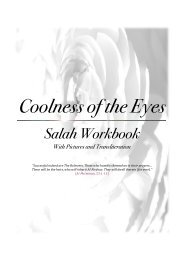
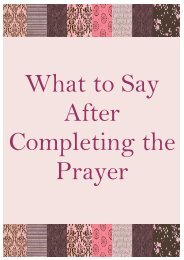
![Ruqyah with Transliteration [05302011] - AlHuda Sisters](https://img.yumpu.com/47668779/1/190x245/ruqyah-with-transliteration-05302011-alhuda-sisters.jpg?quality=85)

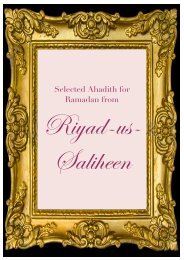

![Ruqyah with Transliteration [07242012] - AlHuda Sisters](https://img.yumpu.com/45657180/1/190x245/ruqyah-with-transliteration-07242012-alhuda-sisters.jpg?quality=85)
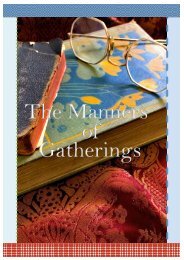
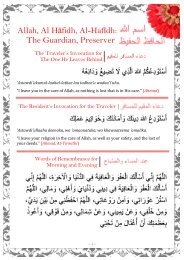
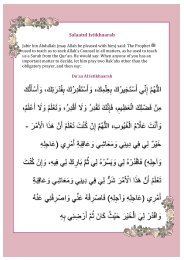
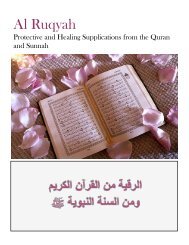
![Precious Remembrance [11232012] - AlHuda Sisters](https://img.yumpu.com/40921168/1/184x260/precious-remembrance-11232012-alhuda-sisters.jpg?quality=85)